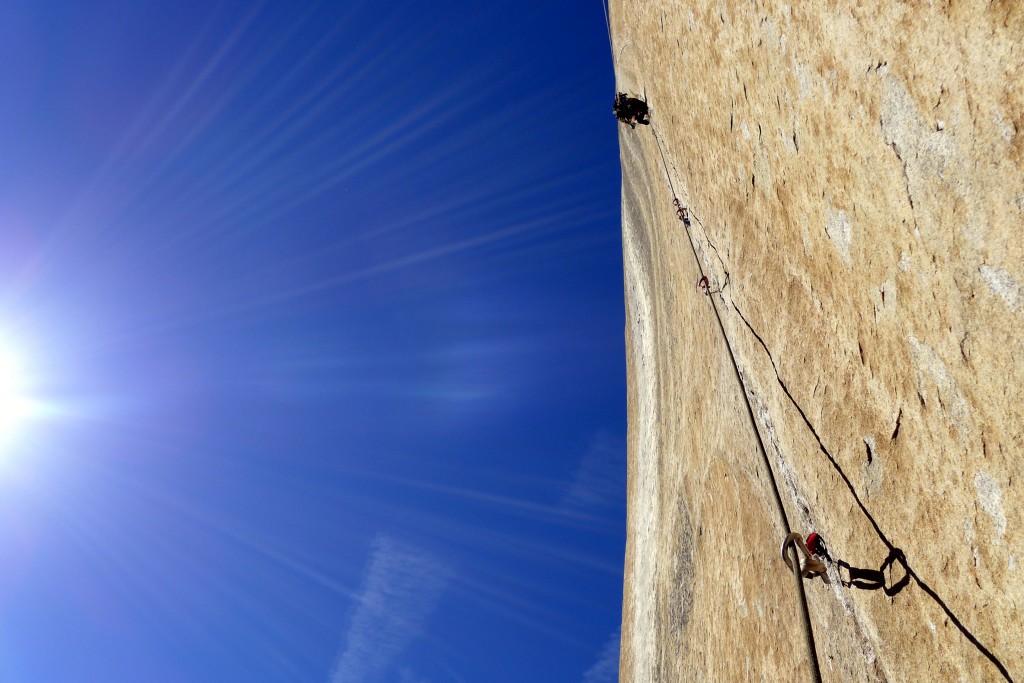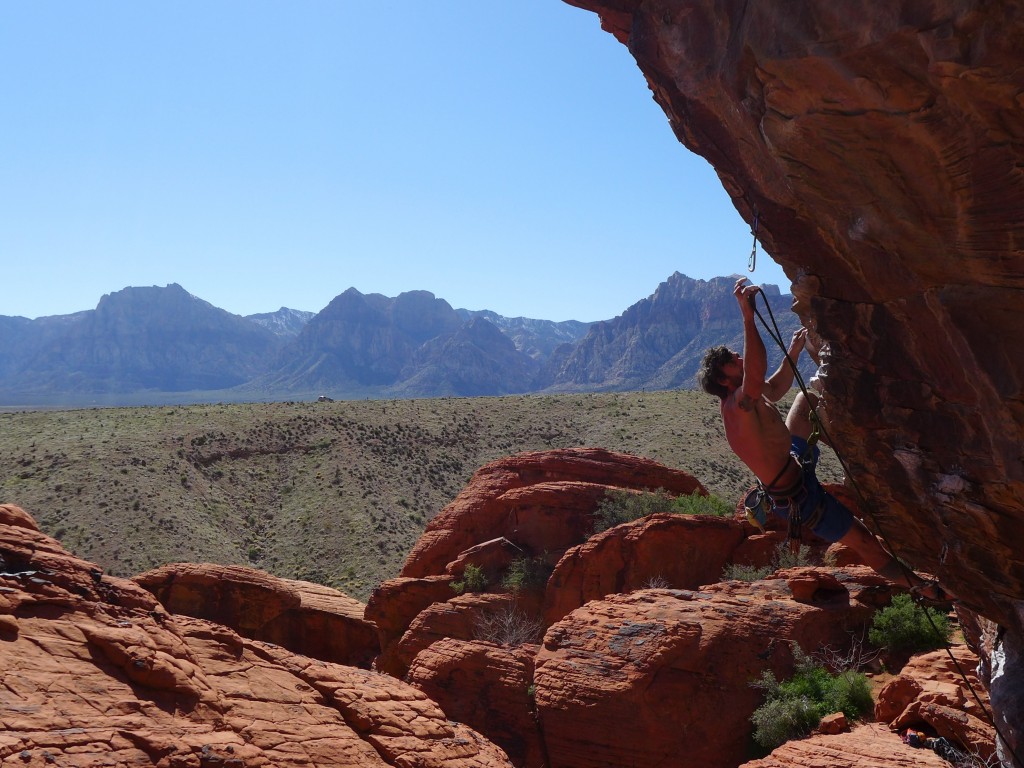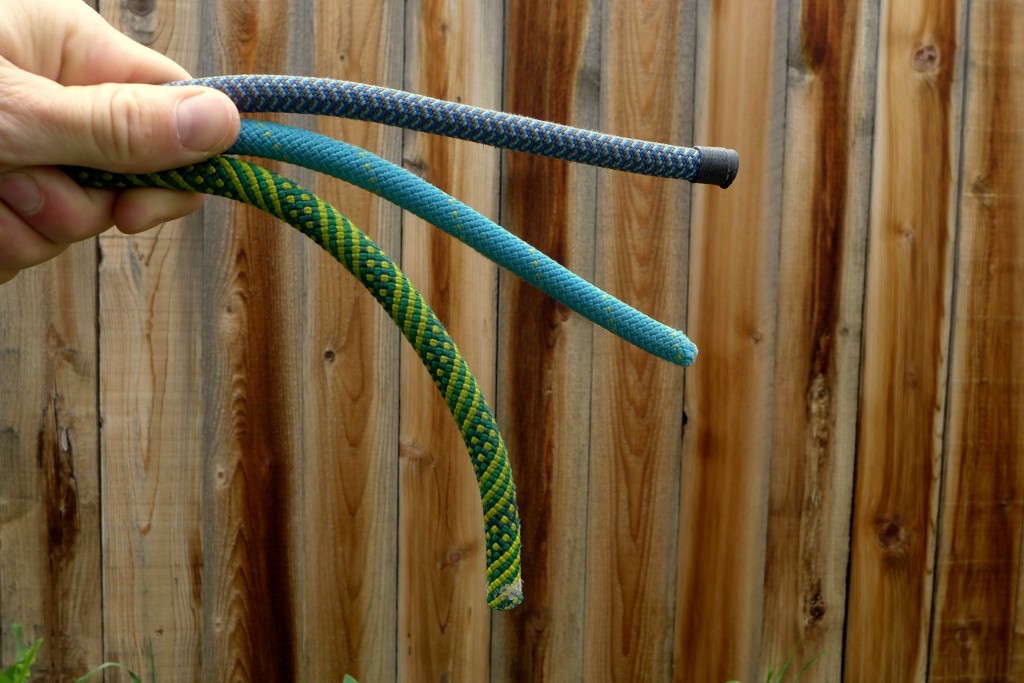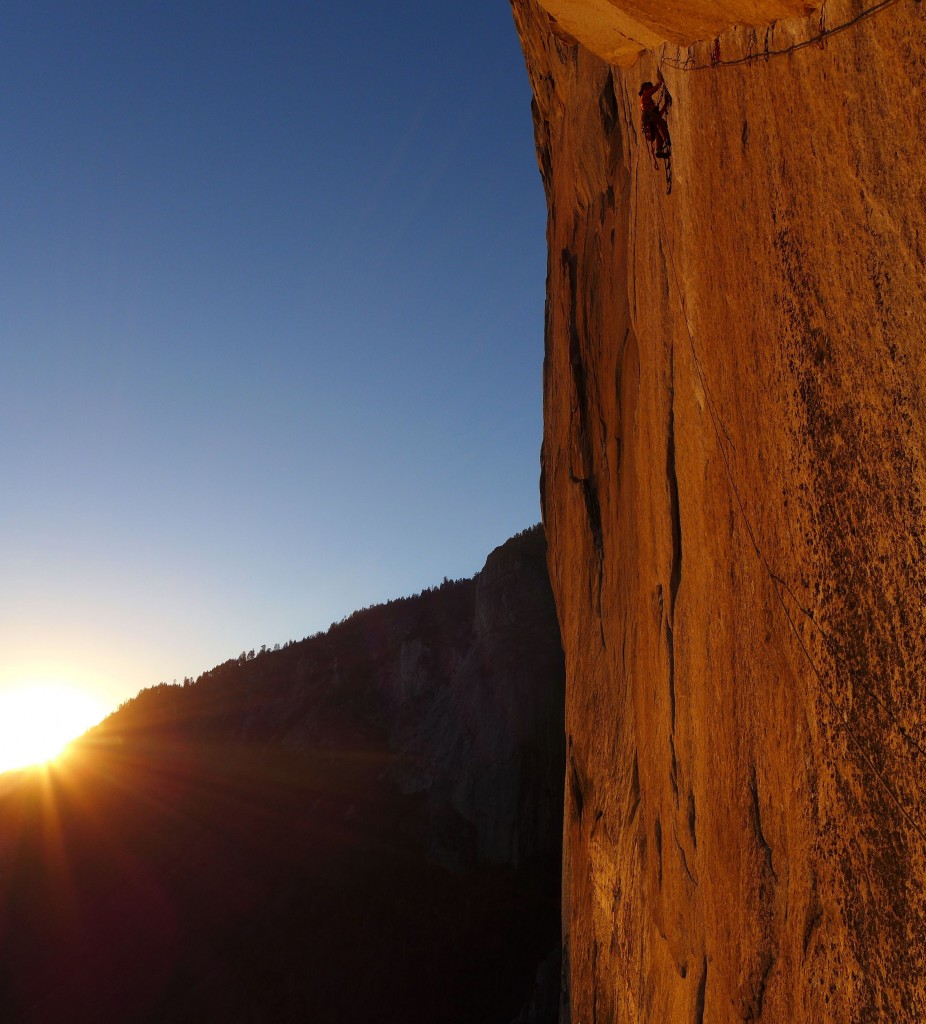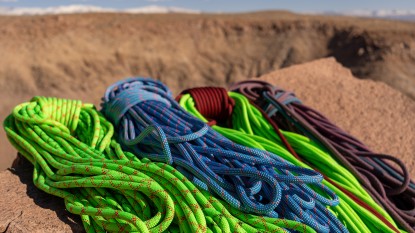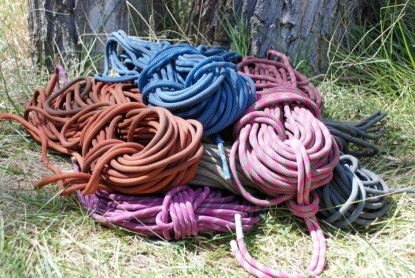Sterling Marathon Pro Review
Our Verdict
Our Analysis and Test Results
Sterling claims on their website that Marathon Pros have, “performed to the highest standards on more routes than most of the competition combined”. To our knowledge this is fairly accurate. Marathon Pros have been one of the top-selling lines of rope for many years, and chances are if you've been climbing long, you've already climbed on one (or several). Although the Marathon series can often be found in gyms, their usefulness extends outside to big wallers, guides, or any climber seeking durability.
Performance Comparison
Weight
With an advertised 10.1 mm diameter, the Marathon Pro is the thickest rope reviewed, but it was not the heaviest. In fact, its 63 g/m weight ties it for second highest; meaning it's lighter than the 10.0 mm Mammut Sensor. Additionally, it is just 1 g/m more than the Edelrid Eagle Light, a rope that claims to be over a half centimeter thinner, at 9.5 mm.
This reinforces the point that diameter is not the most useful way to look at ropes. While we do acknowledge that thicker ropes can be more of a burden to belay with, the methods used to measure diameter are not standardized, so there is no way to accurately compare it between different companies. Therefore, we suggest considering thickness in conjunction with weight to get a more complete picture of rope construction. Weight is equally, if not more important, than diameter for climbing performance. A leader near the top of a 60 meter pitch is more likely to feel the extra pound and a half of a Marathon Pro, relative to a Fusion Nano IX, dragging them down than the slightly higher friction of the thicker diameter.
This is not to say that low weight should be the only thing to look for when shopping for a rope. Heavier ropes often have their own benefits, such as longer lifespan and more resistance to cutting on sharp edges, that we will discuss later.
Catch
In the field it can be difficult for our testers to accurately judge catch. This is because the weight and motion of the belayer, combined with the length of rope out and distance of the fall, have a much larger effect on the “softness” of a catch than the characteristics of the rope itself. For this reason we place some trust in the UIAA to obectively evaluate catch in a controlled environment. In their drop test they gave the Marathon Pro an impact force of 8.6 kN, which places it within the narrow range that all the award winning ropes coincidently fell inside of; between 8.5 and 8.8 kN. In their stretch analyses it exhibited the longest dynamic and second longest static elongations with scores of 35.3% and 8.4% respectively. These results mirrored reports from the field where our testers were surprised that a rope as thick as this one could provide such a soft catch. By the end of our trials this rope continued to gently stop whippers despite many total falls and the accumulation of dirt and sand in the fibers. This sustained ability to provide a dynamic catch was not observed on all the ropes we used and was one of the Marathon Pro's most appreciated qualities.
Handling
Handling was one area where this rope did not receive a high score. This has more to do with the Marathon Pro competing against ropes that are all skinnier, and thus inherently more dexterous, than from actual unpleasant handling. We gave it a score of six out of ten in our subjective handling evaluation. This ties it for second to last with the Mammut Sensor. For its size, however, we think it behaves well and does not create too much friction in our belay devices. Additionally, we can report that while its initial handling was only satisfactory, it maintained that level of performance far longer than many other ropes that became stiff and unusable. Its loosely woven, double-pick, sheath may have been responsible for this longevity.
Durability
The most outstanding characteristic about this rope is its durability, which is why it took home our Top Pick award for a 'workhorse' rope. We've seen Marathon Pros withstand extended top roping sessions on coarse monzonite crystals, and all the abuse of bigwall tactics on Yosemite's El Capitan, and come out no worse for the wear. While many ropes age it's common for the dynamic stretch to lessen and the handling to decline until you are forced to retire what feels like a stiff steel cable. Like we've mentioned before, however, toward the end of our tests the Marathon Pro continued to provide a soft catch while maintaining satisfactory handling. We credit this performance to the thick sheath that represents 42% of its overall weight—the highest sheath proportion of any rope reviewed. This may make the rope bulky and heavy, but the durability it produced was unmatched.
Consider one anecdotal example. In 2013, two of our testers brought six ropes along for a trip to Chile's Cochámo Valley with hopes of establishing a route on one of the many soaring granite walls there. During weeks of hard work climbing, hauling, cleaning, and equipping new pitches, their ropes endured rockfall, abrasion, and repeated falls. In the end they succeeded with a first ascent of a 19 pitch, Grade V, free climb. The effort had destroyed their muscles, motivation, and all their ropes but one, a Marathon Pro.
Best Applications
The exceptional durability of this rope makes it appropriate for many applications. Bigwall aid climbing, or dedicated use in a gym, are two of the primary examples. Additionally, Marathon Pros are well suited for climbers that like to take a lot of falls or who climb on coarse abrasive rock, like Joshua Tree's quartz monzonite. Although it is heavy, any cost conscious climber could consider this rope because it will save them money in the long term by preventing them from shopping for a rope again anytime soon.
Value
Depending on the options, this rope can cost between $244 and $324 for the most common 70 meter versions. At these prices it is no bargain rope, but it's still less than several of the more 'high performance' ropes reviewed. Remember as well that the Marathon Pro can be expected to last longer than many others; perhaps twice the lifespan compared to the skinniest single ropes. For these reasons, even with an upper-mid range price tag, we think this rope provides a great value.
Conclusion
As we've tried to make clear, the Marathon Pro demonstrated the best durability of any rope examined in this review. Primarily for this reason it won our Top Pick Award for the best 'workhorse' rope. Its heavy weight (63 g/m) created by the thick sheath was its greatest drawback. However, in many situations this heft can be tolerated for the increase in lifespan it provides. Overall, we recommend this rope for shoppers who are looking for a good performing rope that can handle lots of abuse.
Other Versions and Accessories
Marathon Pro Dry Rope
- Dry Core and Dry Coat Treatment
- Available in 60 or 70 meter length options
- Choose from four different colors
- $275
Sterling offers lengths of 50, 60, 70, or 80 meters with a bi-pattern option that increases the price by about $50



